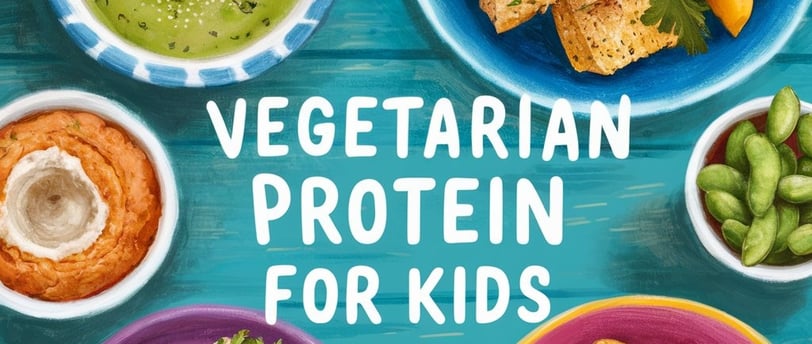Vegetarian Protein for Kids
1/5/20251 min read


Ensuring adequate protein intake is crucial for the growth and development of children following vegetarian diets. While plant-based diets can meet protein requirements, careful planning is necessary to incorporate a variety of protein-rich foods such as legumes, nuts, seeds, whole grains, and dairy or fortified plant-based alternatives to support optimal nutrition for vegetarian kids.
Combining legumes and grains is a nutritional powerhouse strategy for vegetarian children, providing a complete protein profile with all essential amino acids. This pairing is particularly beneficial as legumes are high in lysine but low in methionine, while grains offer the opposite, creating a complementary amino acid balance. Popular combinations include rice and beans, lentils and barley, or chickpeas and couscous.
Beyond protein, this combination offers a wealth of other nutrients. Legumes contribute fiber, iron, folate, and potassium, while whole grains provide B-vitamins, magnesium, and additional fiber. Early introduction of these foods can enhance overall diet quality in toddlers, improving nutritional intake during critical developmental years. It's important to note that while combining legumes and grains at each meal isn't necessary, as the body can store amino acids over 24 hours, incorporating a variety of these foods throughout the day ensures optimal nutrient intake for vegetarian children.
Calcium-fortified soy milk is an excellent dairy alternative for vegetarian children, offering comparable nutritional benefits to cow's milk. One cup of fortified soy milk typically contains about the same amount of calcium as cow's milk, making it a valuable source of this essential mineral for bone health. Additionally, soy milk is often fortified with vitamin D, which aids calcium absorption, and provides high-quality plant-based protein, with approximately 7 grams per cup.
Care
Your trusted partner for personalized pharmacy services.
Connect with us
Pharmacy
© 2024. All rights reserved.
